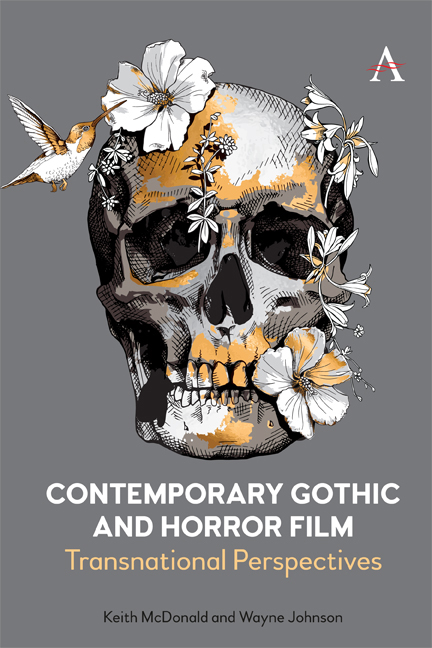Book contents
- Frontmatter
- Dedication
- Contents
- Acknowledgements
- Introduction
- 1 The Gothic Tradition Illuminated on Screen
- 2 Grief Encounters: Ghost Narratives
- 3 Folk in Hell: Rurality in Transition
- 4 Vampire Gothic as Post-Exotic Gloom
- 5 Shock and Awe: Cosmic Horror as Existential Crisis
- 6 De-Composmolitanism: Zombie Horror as Apocalypse
- Coda
- Bibliography
- Index
6 - De-Composmolitanism: Zombie Horror as Apocalypse
Published online by Cambridge University Press: 04 June 2021
- Frontmatter
- Dedication
- Contents
- Acknowledgements
- Introduction
- 1 The Gothic Tradition Illuminated on Screen
- 2 Grief Encounters: Ghost Narratives
- 3 Folk in Hell: Rurality in Transition
- 4 Vampire Gothic as Post-Exotic Gloom
- 5 Shock and Awe: Cosmic Horror as Existential Crisis
- 6 De-Composmolitanism: Zombie Horror as Apocalypse
- Coda
- Bibliography
- Index
Summary
Writing in Sight and Sound , Kim Newman recognizes the propensity for seeking a direct symbiosis between horror tales and emergent societal phenomena, stating, ‘it's tempting to comb through the theatrically released horror films early in the year, looking for premonitions or unexpected relevance with what came next in the real world’ (BFI). He notes that one of the first movies to have its distribution directly affected by the Covid-19 pandemic was A Quiet Place: Part II (dir. John Krasinski, 2020), a film which revolves around a fractured and terrified society attempting to find security after an invasive threat which feeds on sound. Newman recognizes that the genre is ‘supposed to deal with the darkest possibilities’, which echoes Halberstam's verdict that ‘monsters are meaning machines’ (21). So, it comes as no surprise that the Covid-19 catastrophe has a confluent familiarity with the fictional fantasies of armageddonal trauma which themselves derive from past upheavals that have been cemented in the cultural imagination.
No doubt there will be a multitude of Gothic and horror films which draw upon the Covid-19 pandemic as a cathartic response to the damage it has both caused and intensified; such is the nature of art and storytelling. However, the recent proliferation of pre-Covid zombie horror already illustrates a growing anxiety about societal collapse and systemic failure and creatively imagines the lived experience of catastrophic global uncertainty and destabilization.
Zombie cinema has evolved over time to become the go-to genre for the ‘imagination of disaster’, a phrase used by Susan Sontag to describe American science-fictional horror reflecting Cold War dread (Imagination ). Part of the proliferation of zombie horror in recent decades has included mining trepidation borne out of the AIDS pandemic, and more recently, the panic stemming from Avian Flu and SARS outbreaks. Rasmus R. Simonsen recognizes the impact that AIDS and its metaphors (to borrow another phrase from Sontag (AIDS)) had upon zombie narratives:
The contagion motif is necessarily omnipresent in all zombie films, but the almost ritualist flow of blood took on an entirely new and problematic dimension after the true impact of the AIDS had been discovered in the 1980s.
- Type
- Chapter
- Information
- Contemporary Gothic and Horror FilmTransnational Perspectives, pp. 127 - 150Publisher: Anthem PressPrint publication year: 2021



